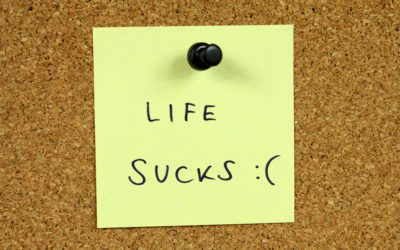The Strangest Discipline
When I ask my clients what they think is really holding them back from living the life of their dreams, the most frequent answer I get is: “A lack of discipline.”
When I ask them which disciplines specifically they feel they’re lacking in, they tend to come back to me with some variations on these common themes:
- Being in a good state of mind
- Taking daily action
- Doing the hard thing first
- Staying focused
- Feeling the fear and doing it anyway
While any one of the above ideas might turn out to be helpful in any given moment, I’ve found that the discipline that makes the biggest difference is the strangest-sounding one of them all:
Being disciplined enough to not do what you don’t want to do, even if everyone around you (and that voice inside your head) is telling you that you should.Click To TweetNow at first glance this may seem like an “anti- discipline”—after all, many success primers tell us that making ourselves do what we don’t want to do is the very basis of successful living. But the kind of success that’s built on unhappy action is like opening an empty present—you rip off the bow, tear through the beautiful wrapping, and discover there’s nothing left inside.
When you’re willing to consistently not do what you don’t want to do, you may find yourself:
- Doing less but accomplishing more
- Spending more time with fewer people
- Burning more brightly without burning out
This is the discipline of trusting your own innate wisdom—of consistently choosing your inner knowing over outer knowledge. It’s the discipline that keeps your kids from drinking or doing drugs even though their “friends” are telling them how cool it is, and that keeps you from jumping into business (or into bed) with the project or person who looks right but feels wrong.
In fact, in researcher Marcus Buckingham’s study of people who had made a consistent positive contribution to their fields over a period of at least 20 years, the popular management consultant and best-selling author discovered that the one common element underlying their sustained personal success was this:
They figured out what they didn’t like doing and stopped doing it.
Why would anyone ever choose to do anything they didn’t want to do in the first place?
Two reasons:
1. Because they think it’s necessary in order to get or maintain something that they want
2. In order to live up to an idea of how they’re supposed to be in the world
In other words, we do what we do (and don’t do what we don’t do) either because it seems like a good idea at the time (i.e because we “want” to), because we think it’s a prerequisite for getting something else that we want (in other words, because we “have” to), or because we think it will make us into the kind of person we’re supposed to be (i.e., because we “should”).
I remember one journalist confronting me about this during an interview.
“It was my boyfriend’s birthday last night,” she began. “I didn’t want to go out for the evening, but I knew he’d be really mad at me if I didn’t. Are you saying I shouldn’t have gone? He would have had a fit!”
I smiled at her earnestness. “Perhaps,” I suggested as gently as I could, “you could begin by not doing the things you don’t want to do that no one else really cares about. Sometimes it’s easier when you’re the only one who knows. Besides, have you ever really regretted not doing something you didn’t want to do in the first place?”
While she did acknowledge the commonsense nature of my reply, there are a couple of things my clients and I have learned that make it easier to not do what you don’t want to do:
1. Need less. So many of us have learned to motivate ourselves through our apparent needs. The idea that “neediness” is a more powerful motivating force than inspiration is rife in our cultural mythology. In fact, many of us have spent so many years motivating ourselves through our apparent needs that being “needy” almost feels normal. But if you want to experiment with a simpler, happier way of going for, getting, and having what you want, begin by examining how many of your “needs” are simply things you want and have promised yourself to feel bad about if you don’t get.
2. Love more. While I’m not a gardener, I’ve been told on many occasions that if you pull up weeds but don’t fill your garden with flowers, the weeds will come back. In a similar way, if you develop the discipline of not doing what you don’t want to do without simultaneously doing more of what you love, you may find the same unsavory choices continuing to fill your action menu.
When you’re doing what you love (and loving what you do), you’ll naturally tend to engage in each of the main time-management strategies currently being touted in the marketplace:
- You’ll schedule your day (because otherwise you’d work all 24 hours).
- You’ll say no to most things (because you’re already doing what you love).
- You’ll either fall in love with or get help with the stuff you don’t love (so you can spend more time doing what you love).
- You’ll gladly sacrifice a bit of efficiency (for the joy of getting to engage fully in whatever it is that you’re doing).
- You’ll do one thing at a time (because it’s so wonderful for you to take the time to do it).
Have fun, learn heaps, and happy exploring!
With all my love,
![]()





